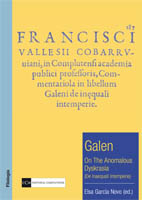Appel à contribution – Standards and Drug use outside the Pharmacy
Call for papers Deadline : June 15 2011
Conference to be held in Lyon, December 15, 16, 17 2011
What happens to drugs once they are marketed and prescribed? Does the passage of a pharmaceutical product into the public faithfully mirror what was intended or expected by the scientists who conceived it or by the pharmaceutical company that produced and marketed it? The trajectories of these products in the public are difficult to predict, whether at the level of physicians’ prescriptions or of patients’ consumption. The fact that most drugs are consumed (or not) in a context beyond the direct control of the medical profession limits the possibilities for standardising their use and gauging the totality of their effects.
As several historians of biomedicine have argued, the appropriation of drugs by physicians and patients is an important factor in their historical and economic trajectories. This appropriation often challenges the notion of ‘standardization’ as understood by the manufacturer and institutional regulator of the product. The level of consumption may be higher or lower than originally expected. The prescription may differ from the indications suggested by the manufacturer, and in some cases the development of addiction or practices of drug abuse can radically change the consumer’s relationship to the drug. Thus, the destiny of a drug in the public may be quite different from the one envisaged or even imagined by the manufacturer, the scientists and the health authorities. One of the aims of this conference is to discuss ‘unpredictable trajectories’ in the public, whether they be off-label use or the deliberate ‘misuse’ of drugs prescribed for a different patient or use.
In some cases, the trajectory of drugs in the public can reveal failures in the standardization of drugs. Side-effects, in particular dramatic ones including patient deaths, make these failures public. We would like to consider two aspects of this question. The first one concerns the drama itself and what it teaches us about the standardization of drugs (the process, rules, experiments, and expertise, as well as what failed or what was predictable). The second point is about the public attitude to such dramas; how they change the representations of drugs and the behaviour of the consumers. We would also like to consider how such affairs contribute to the emergence of patient associations and movements. Such high-profile affairs also change the relationship between patients, pharmaceutical firms and public health bodies. Thus, we can consider the history of certain drugs in the public as testifying to the failure of standardization.
Finally, pharmaceutical industrialists, patients and public health administrations were aware from the beginning that the fate of drugs in the public was difficult to manage and control. Thus, they aimed to establish rules for the marketing of drugs, including the supervision of prescriptions and compliance with the indications. There have also been initiatives to collect data about drugs effects and indications with the aim of defining the optimal use of the drugs, often with the collaboration of patient associations. Thus, the final issue we would like to raise concerns the standardization of drug alert mechanisms (for example the organization of ‘pharmacovigilance’ in France beginning in the 1970s and traceability of products).
We invite papers on the following themes:
1. “Unpredictable trajectories”: – Studies in drug consumption (quantitative and qualitative data). – Drug misuse, non-use and abuse. – Second lives of drugs: when the public use of drugs changes indications and prescriptions.
2. Drugs in the public: failures of standardization: – Unpredictable side-effects and their consequences. – Public affairs and scandals: changes in the public perception of drugs.
3. The public life of drugs and the limits of control: – The regulation of drugs markets: supervising prescriptions. – Patients as consumers: how to control the use and consumption of drugs? – Traceability of drugs and standardization.
Europeans presenting papers at this conference will have their travel and accommodation provided by the European Science Foundation.
Abstracts of not more than 450 words should be submitted before June 15 2011.
Please send your abstract in ‘rtf’ format to the addresses of the organisers.
Sophie Chauveau; sophie.chauveau@ish-lyon.cnrs.fr Ulrike Thoms; ulrike.thoms@charite.de Jonathan Simon; jonathan.simon@univ-lyon1.fr
Note that papers will be pre-circulated prior to the conference.
Please address any enquiries to the organisers.


